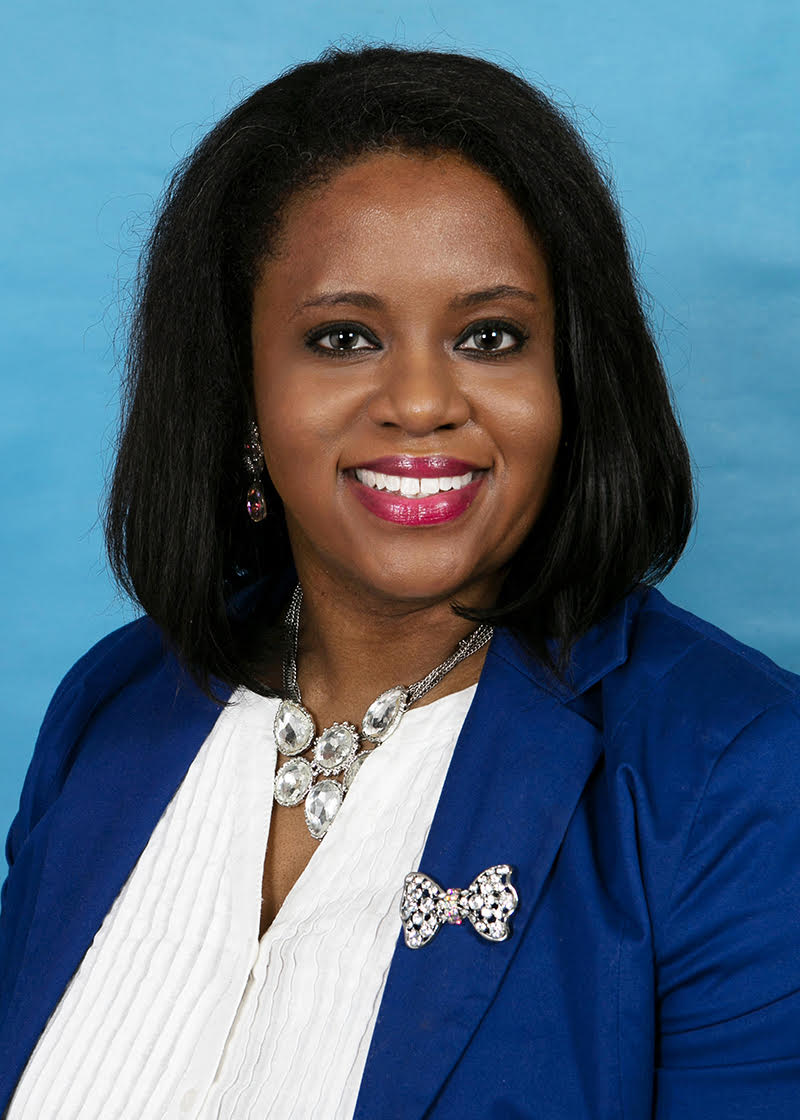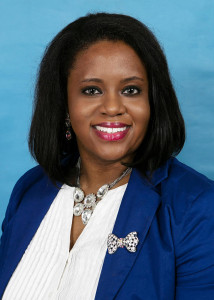It’s been a busy summer for the principal of E.E. Smith High School in Fayetteville, North Carolina. Melody Chalmers has been making sure that her building is ready to go for the first day of school: the air conditioning running, the rooms cleaned, the teachers armed with supplies and lesson plans, the correct schedules printed.
She wants everything to be “picture perfect” and correct. The back to school preparations are enough to give even seasoned teachers and administrators uneasy dreams the night before over one thousand teenagers will flood the halls. But there are no bad dreams for Chalmers who believes in being proactive and having a positive attitude. Her motto is “No excuses, just results.”
That can-do attitude is one of the reasons Chalmers was named 2016 Wells Fargo Principal of the Year. And it’s a good attitude to have when, in addition to running the school, her new title requires travel all over the state as an ambassador for education, spreading her message about what North Carolina needs to do for its students.
And she should know, having been born and bred here. In fact, Chalmers graduated from the very same high school where she now hands out diplomas.
“Being a student [at E.E. Smith High School], I had a wonderful experience with teachers and administrators believing in my dreams and being supported. There wasn’t any other place I wanted to teach to pour back into the students that which was poured into me and continue that tradition.”
A culture of learning was also found at her home. Both her parents were lifelong educators, who “are the epitome of caring, compassionate educators who do it for the love of the children and [she] continues in their footsteps” saying that she saw the work they did and subconsciously her parents had a great impact on what she decided to do.
While she graduated from North Carolina A&T State University with an English education degree and had completed her student teaching, it wasn’t until her first teaching job, back at her high school alma mater that she knew she would be in it for the long haul: “From the moment I began that job, it became a passion. I fell in love with my students and I wanted to do everything to make sure they could succeed. It became something personal.”
Chalmers taught English for five years and the principal at the time, René C orders, noticed the young teacher who took her job very seriously and the way Chalmers “genuinely cared about [her] students and believed in being professional in everything [she does].”
It was Corders who encouraged Chalmers to move into administration: “She encouraged me to do so. She provided me with many opportunities to demonstrate leadership opportunities among the faculty. She had so much faith in my abilities and she mentored and molded me to consider applying for a masters in school administration.”
Corders recognized a “young person who had a real keen understanding of the power of being a teacher and the impact that teachers can and were making on students’ lives.”
Around the time that Chalmers was thinking about leaving teaching for an administrative position, she was in the minority. In North Carolina, men were three times more likely to do so than women — at the high school level only 24% of principals were women — and nationally, only 10.7 percent of school administrators were black or African American.
Chalmers admits that being a young female in such a position had its challenges, but said, “over time I’ve grown into my role. I understand more about motivating people and leadership,” adding “there can be gender bias in leadership. There might be times when people might respond to me differently – positively or negatively – because I’m a female. That can become frustrating because, in the end, I have same vision for a successful school as a man and the same expectations for staff and students.”
And that vision, which she now speaks about as she travels across the state, includes getting people to invest in public education. “We’re at a critical point where we are being asked to do more with less. But the good news is that principals and educators are living up to the challenge of making sure students have a quality education, using the resources that are available with what we have. We are reaching out to the community to form partnerships and secure grants to help meet the needs of our students in a system that is very much underfunded. But, if we believe in education, we need to direct our resources to our children.”
She’s heard the research that “teacher pay isn’t the biggest motivator for current teachers, but it is needed to recruit young teachers so the pool grows instead of the way it is currently shrinking.
Despite the doom and gloom surrounding North Carolina’s public schools in the news, she wants to reassure the community that “while there are issues, we are going to do everything we can make sure our students succeed.”
It’s not only up to principals like Chalmers though. In her own words she is encouraging all of us to “evaluate your conscious when you vote and make the decisions about the person who makes laws. Think about where their values are. Are they supporting a budget that funds what needs to be funded?”


There are no comments
Add yours